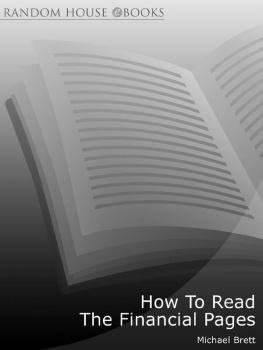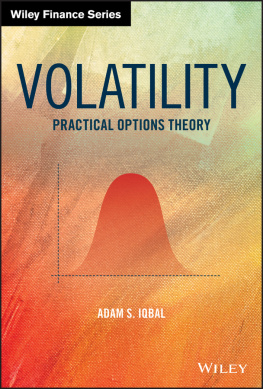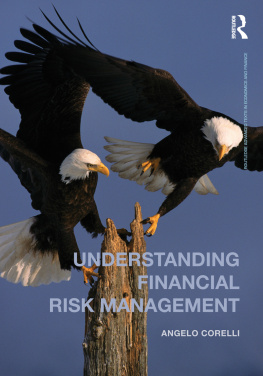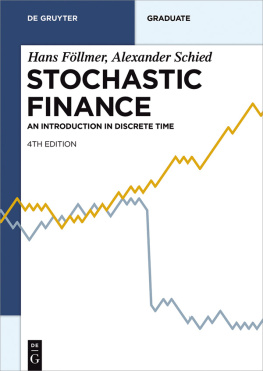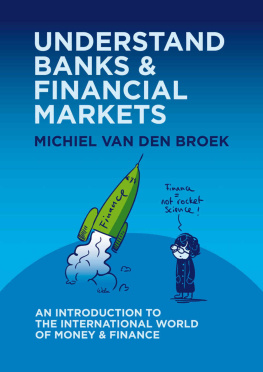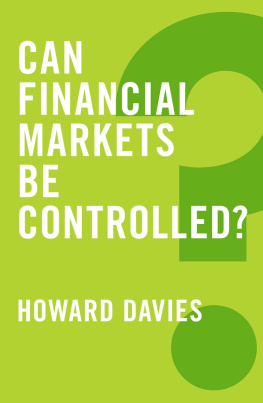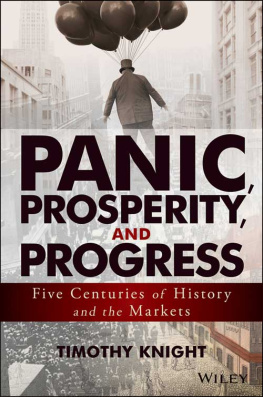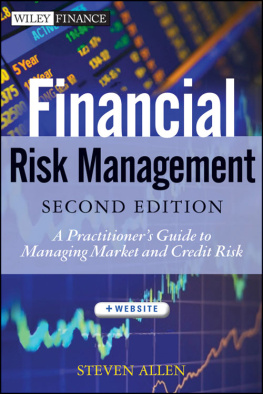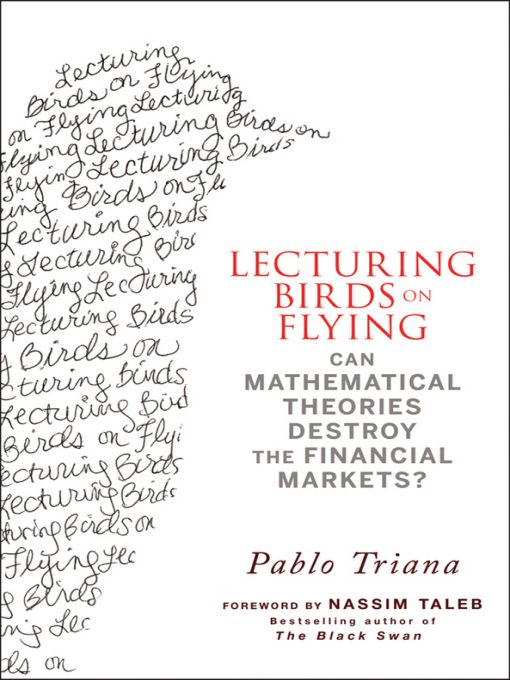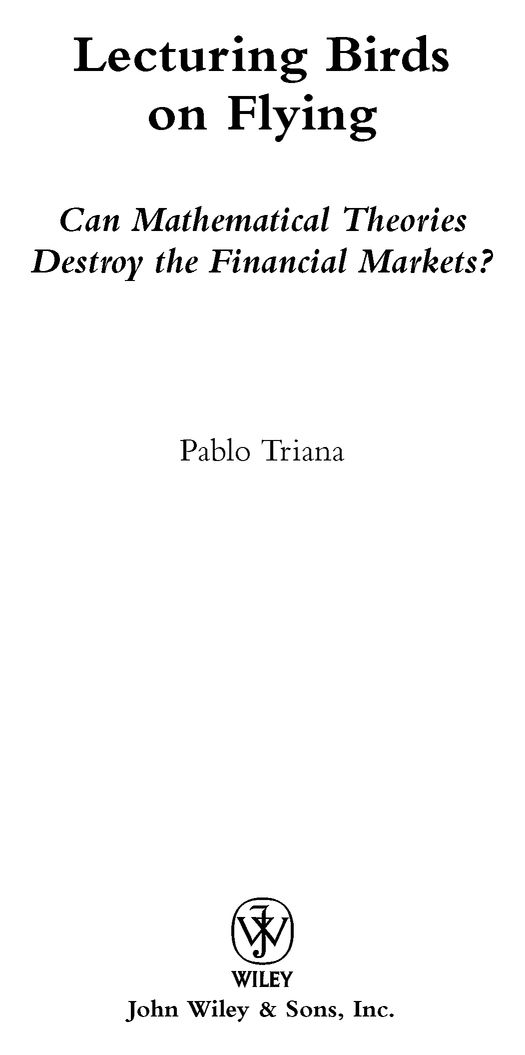Table of Contents
To my parents, who gave me the perfect life.
Too large a proportion of mathematical economics are a mere concoction, as imprecise as the initial assumptions they rest on, which allow the author to lose sight of the complexities and interdependencies of the real world in a maze of pretentious and unhelpful symbols.
John Maynard Keynes, 1936
Because of the success of science there is a kind of pseudo-science, social science isan example, which is not a science. They follow the forms, they gather data andso forth, but they dont get any laws, they havent found anything, they haventgot anywhere (yet)...Maybe I am wrong, maybe they do know but I dont thinkso, I have the advantage of having found out how hard it is to really get to knowsomething, how careful you have to be about checking the experiments, how easyit is to make mistakes. I know what it means to know something and thereforeI see how they get their information and I cant believe that they have done theworks necessary, and the checks necessary, and the care necessary. I have a greatsuspicion, that they dont know and that they are intimidating people. I dontknow the world very well, but thats what I think.
Richard Feynman, 1981
Beware of geeks bearing formulas.
Warren Buffett, 2008
Foreword
I
January 2009: I am at the World Economic Forum in Davos, looking at the sorry crowd of businessmen, journalists, and bankers. There are also a few finance academics. Many practitioners look like they have just fallen off a bicycle, still confused about how to behave. All these years, they had not realized that their models underestimated the risks of high-impact rare events, allowing the buildup of huge positions that are in the process of destroying free markets, capitalism, and finance. Instead of making probabilistic assessments about Black Swans, they should have insured some kind of robustness to them. I feel sorry for the crowd, as I am certain that most of these people will not be here next yearthere is effectively a mechanism called evolution, harsh to humans.
But the academics among them, equally wrong about the models (in fact, they were the ones feeding bankers with bad models), wrong about the world, wrong about the very notion of knowledge, wrong about everything, will be back next yearthat I guarantee. Unless they are caught seducing graduate assistants, their jobs are safe. Nobody ever lost his tenure in social science for being wrong (the opposite may be true). There is no such thing as evolution in academic settings.
II
The biggest myth Ive encountered in my life is as follows: that the road from practical know-how to theoretical knowledge is reversiblein other words, that theoretical knowledge can lead to practical applications, just as practical applications can lead to theoretical knowledge. After all, this is the reason we have schools, universities, professors, research centers, homework, exams, essays, dissertations, and the strange brand of individuals called economists.
Yet the strange thing is that it is very hard to realize that knowledge cannot travel equally in both directions. It flows better from practice to theorybut to understand it you have nontheoretical knowledge. And people who have nontheoretical knowledge dont think of these things.
Indeed, if knowledge flowed equally in both directions, then theory without experience should be equivalent to experience without theorywhich is not the case.
The myth may have all started in a Plato dialogue, Euthyphro, in which Socrates heckled a fellow who claimed to be pious but could not define piety. The flustered fellow, bullied by Socrates, never replied (according to Plato) that babies drink their mothers milk without being able to define what drinking milk is, or love their mother without being to explain what love or mother mean. This led to the thinking in the primacy and overblown importance of what can be called propositional knowledgewith so many side effects.
Alas, it took me a long time to disbelieve in propositional knowledge. Not only do you need to be a practitioner to realize it, but you need to ignore cultural opinions and use the raw, plain, easily obtainable, and somewhat shockingly potent evidence. And if you consider the effect for a moment, you will realize that it is more consequential than you thought.
Let me explain how the problem started screaming at me, around 1998. I was then sitting in a Chicago restaurant with a finance academic, though a true, thoughtful gentleman. He was advising one of the local exchanges on new products and wanted my opinion on the introduction of knock-out optionswhich I had covered in some detail in my first book, Dynamic Hedging. He recognized that the demand for these options was great, but wondered how traders could handle these exotics if they do not understand the Girsanov theorem. The Girsanov theorem is about a change of probability measure, something mathematically complicated that was needed to derive a closed-form formula for the optionsthough in the well-behaved Gaussian world. But you dont need it to understand anything about exotic options. For a minute I wondered if I was living on another planet or if the gentlemans PhD led to his strange loss of common senseor if people without practical sense usually manage to get the energy to acquire a PhD in financial economics. Nobody worries that a child ignorant of the various theorems of thermodynamics and incapable of solving an equation of motion would be unable to ride a bicycle. Yet, why is it that we made the Euthyphro mistake with our understanding of quantitative products in the markets? Why should traders responding to supply and demand, little more, competing to make a buck, do the Girsanov theorem, any more than a trader of pistachios in the Souk of Damascus needs to solve general equilibrium equations to set the price of his product?
Then I realized that there has to be a problem with educationany form of formal education. I collected enough evidence that once you get a theory in your head, you can no longer understand how people can operate without it. And you look at practitioners, lecture them on how to do their business, and live under the illusion that they owe you their lives. Without your theories and your learning, they will never go anywhere.
All that can be tested. How? We can look at historical evidence. It is there, in front of our eyes, staring at us.
III
Let us take what is known as the Black-Scholes option pricing formula. Every person who had the misfortune of taking a finance class is under the illusion that the Black-Scholes-Merton formula is a gift from the three individuals who offered it to mankind and need to be rewarded for their great deed because we otherwise would not have the technology to understand these items. Without it we cannot price options. True?
Well, Espen Haug and I scratched the surface looking for the real evidence going back to the late nineteenth century. And we figured out that traders did much, much better pricing options before the option formulas were invented. The solid arbitrages were maintained (put-call parity, no negative butterfly, etc.). Traders, thanks to tinkering and evolutionary pressures, fumbled their way into a heuristic option pricing formula: Those who liked to short out-of-the-money options blew up in time; those who bought them survived. Traders knew what the heuristic delta wasabout half for an at-the-money option, progressively less for an out-of-the-money option. Indeed, in our paper we interviewed veterans who confirmed that option traders in Chicago priced off the butterfly, with no sheets (i.e., no pricing formula). I myself was a pit trader in Chicago in the early 1990s and saw that prominent option traders priced options without formulas.


